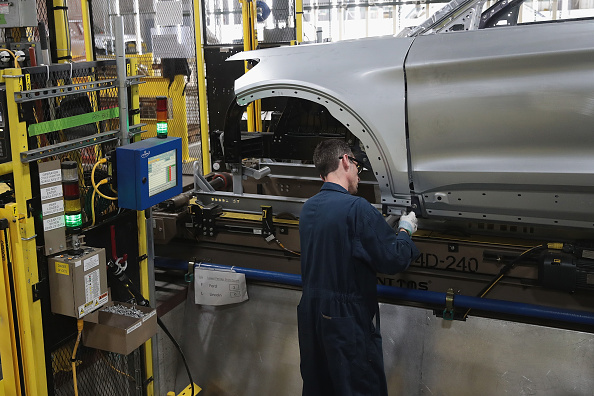US factories suffer worst month since 2009 – and Trump blames the Fed

The US manufacturing sector contracted at its fastest rate in a decade in September, according to a closely-watched survey, as trade wars and a global slowdown took their toll on factories.
Read more: US manufacturing sector suffers worst month in seven years in April
The September purchasing managers’ index (PMI) from the Institute for Supply Management (ISM) fell to 47.8, a score not seen since 2009. September was the second month in a row the sector returned a sub-50 score, which indicates contraction.
“Global trade remains the most significant issue,” said ISM chair Timothy Fiore. He said this was demonstrated by the contraction of new orders, which led to shrinking production and employment in US factories last month.
US factories have suffered in 2019 under the trade policies of President Donald Trump, who has ratcheted up tariffs on the world’s second-largest economy, China. This has damaged global trade and in turn hurt industrial production.
Yet Trump was quick to deflect the blame on to US Federal Reserve chair Jay Powell today, arguing that he has not cut interest rates low enough to devalue the dollar against other currencies.
He tweeted that Powell has “allowed the Dollar to get so strong, especially relative to ALL other currencies, that our manufacturers are being negatively affected. Fed Rate too high. They are their own worst enemies, they don’t have a clue. Pathetic!”
US stock markets reacted badly to the data. The S&P 500 and Dow Jones industrial average both slipped into the red after opening higher.
Yields on 10-year US government bonds, which move inversely to prices, also fell. By mid-afternoon UK time they were 2.2 basis points (0.022 percentage points) lower at 1.643 per cent as investors bought up safe assets upon the bad economic news.
Paul Ashworth, chief US economist at consultancy Capital Economics, said the poor PMI reading “will reignite fears that the US economy is headed for a recession”.
Yet he said that part of the weakness may be due to the all-out strike at car company General Motors, which began in mid-September.
Read more: Job losses mount as Brexit fears spark recession in manufacturing sector
Nevertheless, he said, it reinforces his belief that the Fed will cut interest rates for the third meeting in a row at its next meeting in a bid to boost the economy, “despite the hawkish protestations of some officials in recent days”.
(Image credit: Getty)